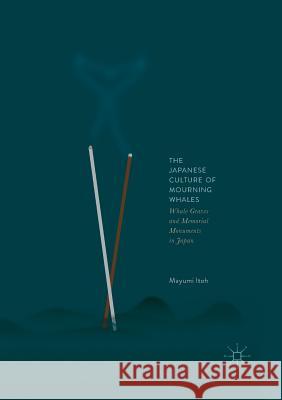The Japanese Culture of Mourning Whales: Whale Graves and Memorial Monuments in Japan » książka
topmenu
The Japanese Culture of Mourning Whales: Whale Graves and Memorial Monuments in Japan
ISBN-13: 9789811349287 / Angielski / Miękka / 2018 / 267 str.
The Japanese Culture of Mourning Whales: Whale Graves and Memorial Monuments in Japan
ISBN-13: 9789811349287 / Angielski / Miękka / 2018 / 267 str.
cena 322,77
(netto: 307,40 VAT: 5%)
Najniższa cena z 30 dni: 308,41
(netto: 307,40 VAT: 5%)
Najniższa cena z 30 dni: 308,41
Termin realizacji zamówienia:
ok. 22 dni roboczych
Bez gwarancji dostawy przed świętami
ok. 22 dni roboczych
Bez gwarancji dostawy przed świętami
Darmowa dostawa!
Kategorie:
Kategorie BISAC:
Wydawca:
Palgrave MacMillan
Język:
Angielski
ISBN-13:
9789811349287
Rok wydania:
2018
Wydanie:
Softcover Repri
Ilość stron:
267
Waga:
0.38 kg
Wymiary:
21.01 x 14.81 x 1.68
Oprawa:
Miękka
Wolumenów:
01
Dodatkowe informacje:
Wydanie ilustrowane











